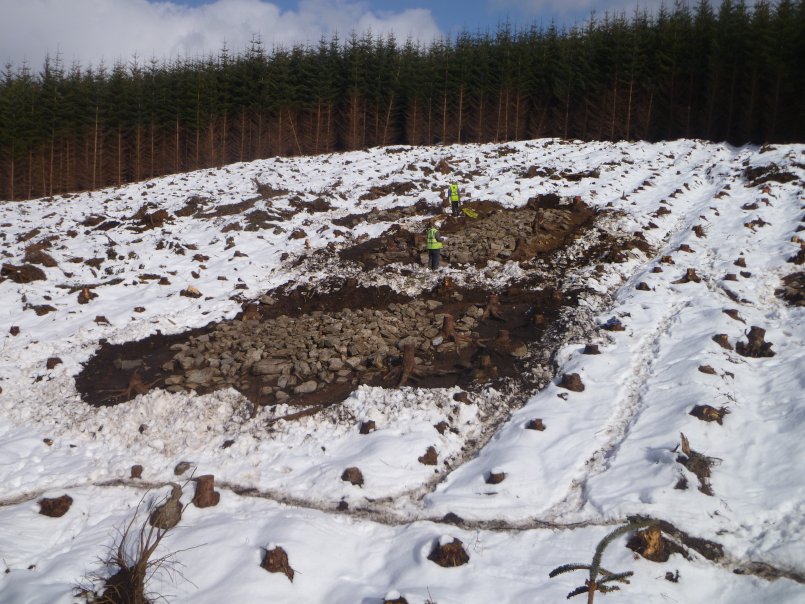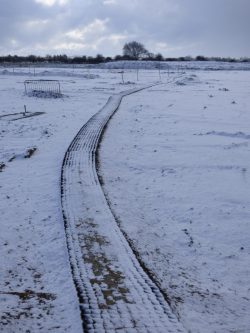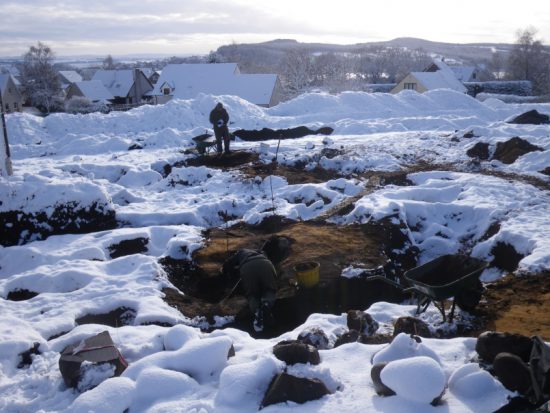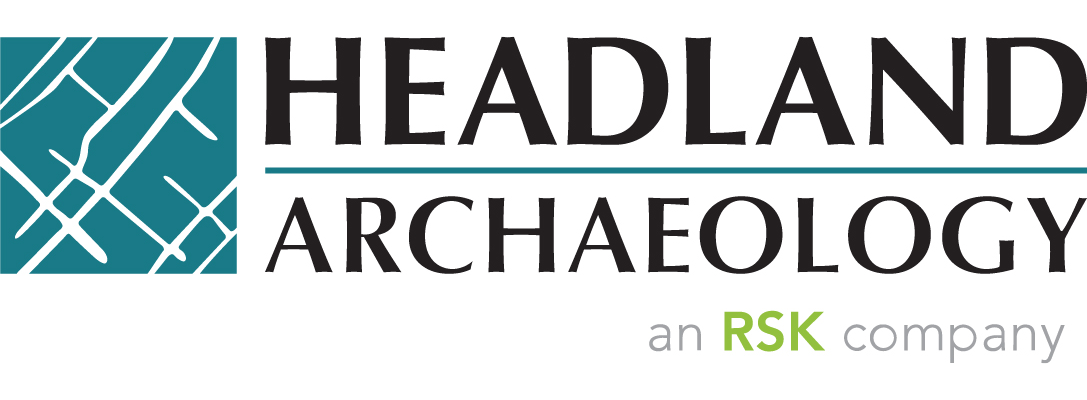
14 Dec Digging in a Winter Wonderland
How do archaeologists prepare for working outdoors in winter conditions?
Archaeologists have long been known for our hardy constitutions when it comes to fieldwork. Wind, rain, snow, we’ve worked through it all in order to make sure deadlines are met.
At Headland we strive to strike the right balance between getting the work done and making sure our staff aren’t working in unsuitable conditions. During the winter we provide suitable winter PPE, facilities for drying out wet clothing and a site welfare that can provide heating and hot drinks during breaks.
 Often in winter it’s not so much the cold that gets as you as the wet, especially true in a country known for its high volumes of rainfall. With the cold you can often warm yourself up with the manual labour of mattocking and shovelling, once the blood is pumping you’d be surprised at how easy it is to work in below zero temperatures. However, once your clothing gets damp, from snow, rain or even sweat, it takes more effort to get it dry once again. To this end drying rooms are key; being able to fully dry your equipment overnight is essential. Additionally, we provide extra clothing so that if you get your gloves soaked and don’t have enough time to dry them you can switch them out for a new, dry, pair; we also provide waterproof gloves.
Often in winter it’s not so much the cold that gets as you as the wet, especially true in a country known for its high volumes of rainfall. With the cold you can often warm yourself up with the manual labour of mattocking and shovelling, once the blood is pumping you’d be surprised at how easy it is to work in below zero temperatures. However, once your clothing gets damp, from snow, rain or even sweat, it takes more effort to get it dry once again. To this end drying rooms are key; being able to fully dry your equipment overnight is essential. Additionally, we provide extra clothing so that if you get your gloves soaked and don’t have enough time to dry them you can switch them out for a new, dry, pair; we also provide waterproof gloves.
Freezing rain, ice and snow also make for more treacherous ground conditions, heightening the risk for hypothermia, slips, trips and falls. We make sure to give our staff toolbox talks on these topics regularly and encourage them to prioritise safe footing over speed, an employee with an injury is a much less desirable outcome than a few extra minutes delay to a project.
We encourage our senior project staff to assess conditions on a daily basis; with the support of the project manager they are able call staff off-site if the weather is unmanageable; there is no use digging up archaeology if it exposes staff to unnecessary risk. We also have worked on several projects where we have used specialty tents to cover sites meaning our staff are protected from wind, rain and snow.




